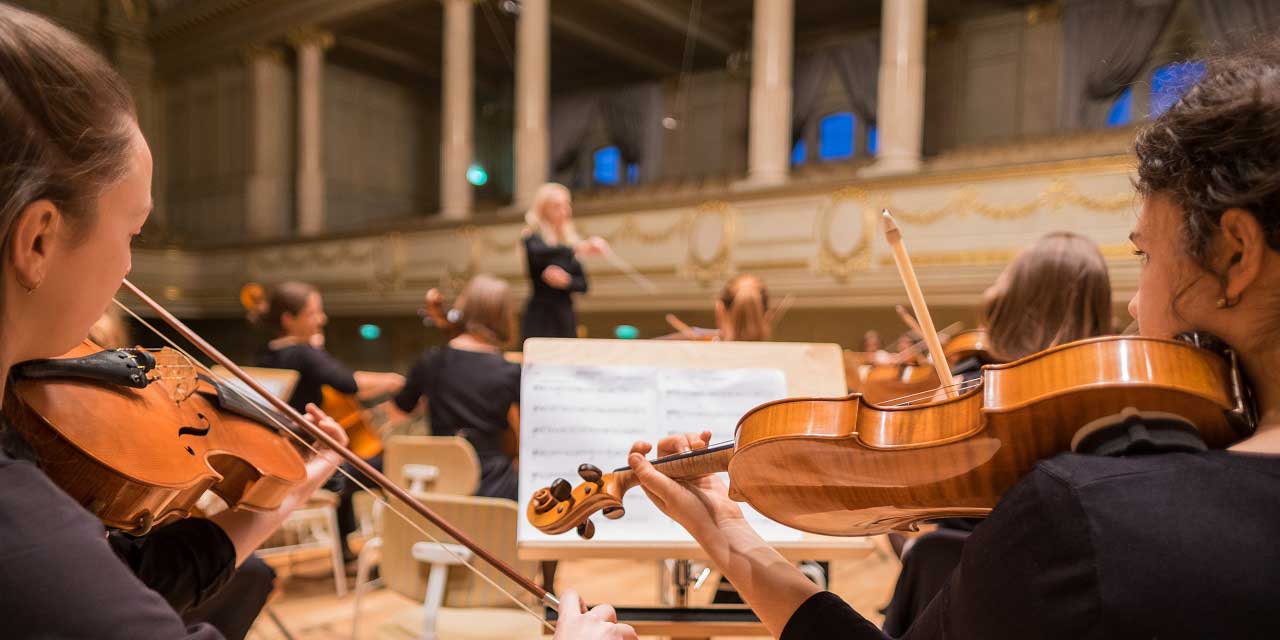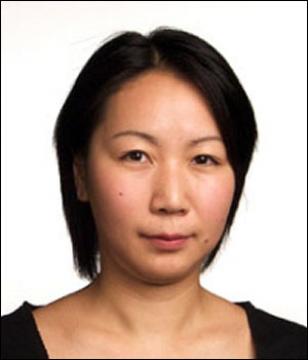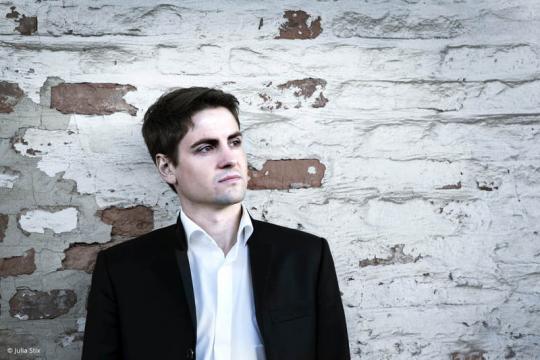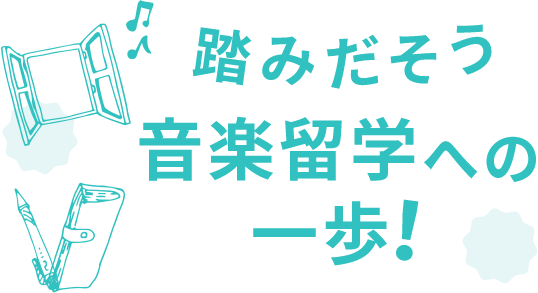
The "Listen to Musicians" section is a section where professionals who usually play music on the stage go down the stage and speak in words.We would like to interview Ms. Namiko Fuse, who is active in the Munich Philharmonic, Germany, as a guest. I would like to talk about the theme of "studying abroad in music."
(Interview: March 2009)
-Profile of Namiko Fuse-
Ms. Namiko Fuse
Born in Tokyo. Started playing the violin at the age of four.After graduating from Toho Girls' High School Music Department, he graduated from Toho Gakuen University in 1998.While attending school, he performed with the Sendai Philharmonic Orchestra and performed at the debut concert of a new musician at the Tokyo Bunka Kaikan Small Hall.In addition, he has been a concertmaster in many on-campus orchestras such as playing a concertmaster in Karl Leister's orchestra.Immediately after graduation, moved to Germany.He enrolled in the Meister class at the University of Music Munich and graduated with the Meister class diploma in 2000. After graduating from the Meister class in 2000, he joined the Munich Philharmonic Orchestra after working as a contract member of Münchener Kammerorchester.Currently, in addition to the orchestra, he is mainly performing in chamber music.He has studied violin under the late Kyoko Suzuki, Zhu Kiju, and Kurt Guntner, and chamber music under Mazumi Tanamura, Ryosuke Hori, Genichiro Murakami, Bartok Quartet, Albanberg Quartet, and Amadeus Quartet.
-First of all, please tell us about your background.
Fuse I started playing the violin at the age of 4, and at the age of 6 I started attending the "Music Class for Children" attached to Toho Gakuen University.After graduating from Toho Gakuen Girls' High School Music Department, I graduated from Toho Gakuen University and enrolled in the Meister Class (Graduate School) of Munich University of Music for two years.Immediately after graduating, he joined the Munich Philharmonic Orchestra and continues to this day.
-You have a great career!
Fuse No, no.I haven't taken any competitions, so I don't have any history of competitions.
-That's surprising.So what made you interested in music?
Fuse: Actually, I wasn't so interested in music and classical music.The violin didn't start by saying that he wanted to do it himself.My mother let me start because she wanted to play the violin.Until I entered Toho Gakuen High School, I used to listen to pop music like any other friend.At that time, I never thought of becoming a professional musician.
-So, did you start to get interested in classical music after you entered high school?
Fuse That's right.Since I was in a music high school, there were many children with great backgrounds.There were some people who came out of the country, such as the number one in the competition.If I was in such a situation, I was quite inspired.I finally woke up, and for the first time, I started practicing on my own initiative.
-I think it was a big stimulus.
Fuse Yes.Then, when I was in the third year of high school, I participated in the Salzburg Summer Course / Mozartium College of Music Summer International Music Academy.For the first time, I listened to European music. While listening to not only sensei but also the performances of the participating trainees, I was impressed by the fact that "European music is wonderful for classical music!"Around that time, I started thinking about studying abroad.
Munich Philharmonic
-Did the Salzburg class give you a chance to study abroad?
Fuse Yes.It was one of the triggers.However, when I consulted with sensei, who was studying, I was advised that "I think it's a little early after graduating from high school," and decided to study at university.Actually, when I was in my second or third year of university, sensei at the university said, "It's about time to study abroad."However, rather than taking a leave of absence, I wanted to study abroad after graduating.And when I was in the XNUMXth grade, this was another big opportunity for me to attend a class held in Lenk, Switzerland.
-You participated in the seminar not only in Salzburg but also in Switzerland.

Fuse Yes.And there, I came across a very nice sensei.It was a very famous sensei who taught me in Munich. I thought, "I really want to learn from this sensei!", So after the class, I went to talk about wanting sensei to study directly under sensei.However, many people were already waiting for their turn to enter the sensei class, so it was impossible to enter next year.But I didn't give up there (laughs).I think it's reckless now, but even after returning to Japan, I contacted sensei several times.Of course, I didn't get a reply ...Even in such a situation, I simply thought that if I went there, I would be able to do something about it.Immediately after graduating from university, I went to Munich in April.
-Great courage and energy!
Fuse is reckless (laughs).Immediately after I traveled, I called sensei and was told, "This year, the capacity is full, so it's impossible to come suddenly."It's natural (laughs).However, once I heard it, I was advised to take the Meister course at Munich University of Music, saying, "I have reached the level of Meister, so I will pass the exam." It was.After passing the Meister course, I decided to enter the sensei class, but due to various circumstances, I had to teach another sensei.To be honest, I didn't know about that sensei at all, but when I went to the lesson, this was a wonderful sensei ...!I used to be a concertmaster at the Munich Philharmonic, so I had a good look at the orchestra study.He is also a wonderful person, and when I think about it now, I happened to meet by chance, and as a result, it was a very lucky encounter for me.
-I don't really understand that kind of encounter.
Fuse Yes, I want to learn from sensei that I met at the seminar!I was thinking ...As a result, everything wasn't wasted.
-If you trace the origin, it was a class.
Fuse Yes.After all, summer training is a great opportunity, so if you are thinking of studying abroad, I would like you to actively participate.
With the Munich Philharmonic
-Then, I would like to ask you about studying abroad. Please tell us about the pros and cons of Germany when studying classical music.
Fuse Not only in Germany, but in European cities, concerts are held every day, regardless of size.You can easily listen to good music at a low price.That's a very good thing.In Japan, I feel like I'll make a reservation for months in advance and work hard to make an appointment.I don't have such a stiff image, and I feel like "let's go shopping", and that's what I can do even if I wear jeans.When I was a student, I used the student discount to watch a lot of operas.Thinking back now, that was a big harvest for me.
-In Japan, that's not easy.
Fuse It will be a big deal.Besides, there are churches here and there without going to a concert, so I think it's of great value just to take a peek or enjoy the atmosphere of the city.
-That would also affect the music.
Fuse Yes.Music still reflects the inside of human beings.For example, I think it is necessary to go out to the city and take a break, rather than just practicing in the room like a Japanese music college student.I think that by going out and feeling the life of Germans directly with your skin or being impressed with something, it will come to life in music.
-So what's wrong with Germany?
Fuse I haven't really felt it.Because I wanted to come from myself.For me, everything was new and positive.If you don't always think positively, just living in a foreign country can be depressing.
-is that so.It's homesick and can lead to negative thoughts.

Fuse: To put it simply, meals are completely different, so many people become homesick there.Maybe it's my feelings.If I have a purpose of what I want to do there and there are many things I'm looking forward to, I think I can do my best even if I become homesick.
-That's right.What do you think is the most important thing when studying in Germany?
Fuse Of course, I think language is important.Before studying abroad, I think you should at least have a simple conversation.However, even after traveling, I can improve my language skills through communication, so I don't think it's the most important thing.More than that, if you have an acquaintance in the field, it is important to get as much information as possible in advance.Especially in Germany, getting a visa and clerical work are very difficult.I think you can get a lot of information on the Internet these days, but things often differ slightly depending on the school or city.
-The key is to collect information before studying abroad.
Fuse Yes.When I first arrived, I had more time to do clerical things than to practice.The same goes for school admission procedures, and for stay visas, you have to go through a lot of paperwork.Therefore, it is definitely better to prepare these paperwork and document preparation in Japan.After coming here, it was a real waste of time to say, "I don't have that one document. I have to send it to my parents."
Munich Philharmonic
-So, are there any advantages or disadvantages of being a Japanese person who is working now?
Fuse: Recently, I don't think there is much racism like being Japanese.Munich is said to be a conservative city, but ...I've heard that the orchestra doesn't want foreigners to enter as much as possible.But when I came in, it was a very international orchestra, so I don't have to worry too much about racial things.However, in Germany, you need an invitation to audition.It's hard to get an invitation just because you studied at the German College of Music.In that sense, I think that Asians in general are probably at a disadvantage when they decide to take it.However, you do not need an invitation to take the Orchestra Academy or Practicant (trainee).If you gain experience in such a place, you can show your background of playing in a German orchestra.In my opinion, if you impress the other person, you will be more likely to get an invitation.If you get there, race doesn't matter.
-Did Fuse get an invitation?
Fuse In my case as well, I was allowed to play as a contract member of the Munich Philharmonic in parallel with the school.Anyone could take the audition.I was hired there, and two months after I started working as a contract member, I was able to audition formal.Recently, I've seen a lot of Japanese people at the orchestra academy and practicants, so I think everyone is starting that way.
-It's important to have some experience in Germany, isn't it?
Fuse Yes.I think it can be done in parallel with school, so I think it's better to start little by little while still in school, without thinking after graduating.Especially in Germany.
-Then, the next difficult question.What does music mean to you, Fuse?
Fuse: Is music for me a big "joy"?Whether I was practicing at home, playing at a concert, or listening as an audience, I was impressed by the greatness of the song and the greatness of the composer.This impression is difficult to put into words, but it's really joy or happiness ...I have come to wonder how happy it is to be able to share a piece of music with the thousands of people in that space.However, it wasn't until I came here that I was impressed in this way.When I was in Japan, I was just practicing hard.I felt like I was working hard toward the exam.Since I came here, I have come to feel that music is "ordinary things around me."You can relax, or you don't try too hard ...Suddenly, music turned into joy for me.
-It has such an advantage to be exposed to music from different countries.
Fuse Yes.Maybe my point of view has changed.I'm not nervous.That's why I've come to enjoy lessons.And instead of focusing on increasing the new repertoire, there was a desire to play the songs that I had practiced in Japan again with my own new feeling.So the repertoire didn't grow that much (laughs).
-Japanese music college students often say, "The test is ...".

It's Fuse, isn't it?I was one of them, so I really understand.I had an exam twice a year, and I was practicing songs for that exam.I was just thinking about the test scores and couldn't afford to enjoy it at all.Not only for music colleges, but for students, the exam scores are always a concern (laughs).
-Please tell us the tips to be active as a professional musician and the conditions for success.
Fuse I don't think there are always conditions for success ...One thing I can say is that Japanese people tend to be humble, but in Germany I think it's better not to do that.Germans have a lot of illusory things, and if you can't compete with them, you may miss your chance.For example, if you humbly say, "Are you going to work for yourself?" When you are about to get a job, you will be perceived as anxious.Humility and flattery are completely unacceptable countries, so it's important to assert yourself directly.
-Self-assertion is one of the Japanese Nigate fields.
Fuse Yes.If you are Japanese, you may not be able to say what you think, thinking about the other person and thinking, "Is this rude?"Germans clearly say that if you think it's rude, it's rude, so it's important to say what you think.I think this is true even for students studying.It's even more important if you're trying to work among Germans.
-It may be difficult for Japanese people, but it is important.
Fuse Also, I often hear this story.A very good person auditioned for the orchestra and thought he could play well, but he wasn't hired.I think it's not about the person's performance or failure, but about the compatibility with the orchestra. "I'm very good at it, but it probably doesn't suit my orchestra."If you are on the receiving side, you may be shocked that your level was low, but if you want to become a professional, you can divide it by saying "I had no connection with here" and switch to the next one. That is also important.
-You'll be depressed ...
Fuse This is the same for all countries.If the orchestra that I really wanted to join is rejected, I'm still depressed.But I have to switch my head there.
Japanese food during Japan tour
-Lastly, please give some advice from Fuse to those who want to study abroad.
Fuse First of all, I think it is important to clarify what you want to study abroad.Since the time you can study is limited, you should set the purpose clearly.For example, if you want to join an orchestra, you can think of the school as a preparatory period for joining an orchestra.Also, if you want to return to Japan after studying abroad, the way you study will change depending on whether you want to study so that you can concentrate on your solo activities.Of course, it is possible that my feelings will change after I go to the site, but to some extent, I think that I should have a solid purpose.
-It means studying with a purpose.I think this is a very informative story for many students!
Fuse I would be happy if you could say that.
-Thank you very much for telling us a lot of interesting stories today!












 Book a Counseling
Book a Counseling